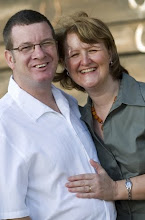 The outcome is very telling of analysis on the flight recorder from an air accident on Air India flight IX812 from Dubai into Mangalore 0n 22-May-2010. BBC News explains that the Serbian pilot was disoriented on preparing for landing the plane, having woken up from sleeping most of the three hour flight. The recorder carries the sound of snoring. The airline declares that the pilot was well rested and thoroughly trained to handle this particular hilltop runway. What could send a well-rested pilot to sleep? One thing we do know is that the co-pilot advised the captain to pull back and go around again, but the Captain continued, coming in too high and at the wrong angle, pulling up eventually, but too late. The plane overshot the runway, burst into flames and killed around 160 people on board. One man lost sixteen relatives, including his wife, two children, an uncle, and others, who ironically, were travelling to attend the funeral of their grandmother. There were eight survivors. There was absolutely nothing wrong mechanically prior to the crash. It was not an act of terror, since no distress signal was issued by the pilot.
The outcome is very telling of analysis on the flight recorder from an air accident on Air India flight IX812 from Dubai into Mangalore 0n 22-May-2010. BBC News explains that the Serbian pilot was disoriented on preparing for landing the plane, having woken up from sleeping most of the three hour flight. The recorder carries the sound of snoring. The airline declares that the pilot was well rested and thoroughly trained to handle this particular hilltop runway. What could send a well-rested pilot to sleep? One thing we do know is that the co-pilot advised the captain to pull back and go around again, but the Captain continued, coming in too high and at the wrong angle, pulling up eventually, but too late. The plane overshot the runway, burst into flames and killed around 160 people on board. One man lost sixteen relatives, including his wife, two children, an uncle, and others, who ironically, were travelling to attend the funeral of their grandmother. There were eight survivors. There was absolutely nothing wrong mechanically prior to the crash. It was not an act of terror, since no distress signal was issued by the pilot.We could blame this on any number of technical issues, none of which I am qualified to comment upon. My observations concern the implications and lessons of this tragedy upon leadership and decision making processes. Essentially, the tragedy was caused by one man’s singular error of judgment. Had he heeded the cautionary advice of his professionally trained and appointed assistant, the outcome would have been far less harmful. The co-pilot was more vigilant, since he had been conscious prior to the approach and was more aware of his environment and its conditions. The pilot not only took his own life, but he took many people with him involuntarily.
For better or worse, this presents the serious nature of leadership with all its risks and possibilities. How often does a leader come into a situation too high and at the wrong angle because he was not alert and sufficiently conscious of his surroundings and their affect upon his approach to circumstances? How often do leaders make decisions alone, despite being surrounding by capable advisors? What dangers there are in senior leadership, sufficiently authorized with the capacity to override the pre-installed safety systems.
This is a lesson to all of us in leadership. No doubt, I have entered into situations too high and consequently taken the wrong angle. What external factors might have been clouding my judgment? Do I need to default to other competent colleagues at times and allow them to handle a situation I am not sufficiently sharp to deal with? Have I been metaphorically asleep at times and relied too heavily upon experience to get me through a situation; unprepared for what lies ahead? Leaders should build around them sufficiently competent counsel that will save from a fatal error of judgment, which could erase one from the scene, dragging many casualties into the mix; with only a few survivors. May those around us speak strongly and confidently enough, according to their informed and discerning perspective of circumstances. May we have ears to hear what is being said and not be so proud as to assume that experience and superior knowledge will carry us through; denying the opportunity for advice from co-workers. May this be the prayer of all leaders at the helm of God’s ship, the Church?
.jpg)